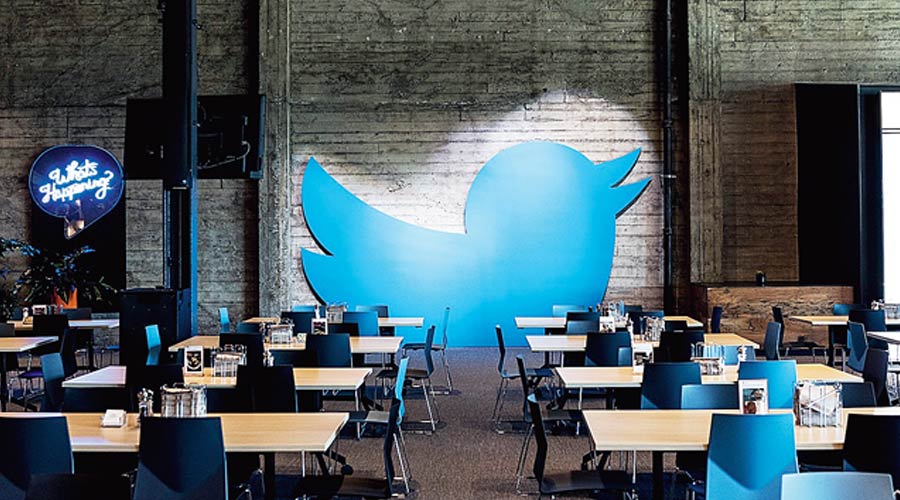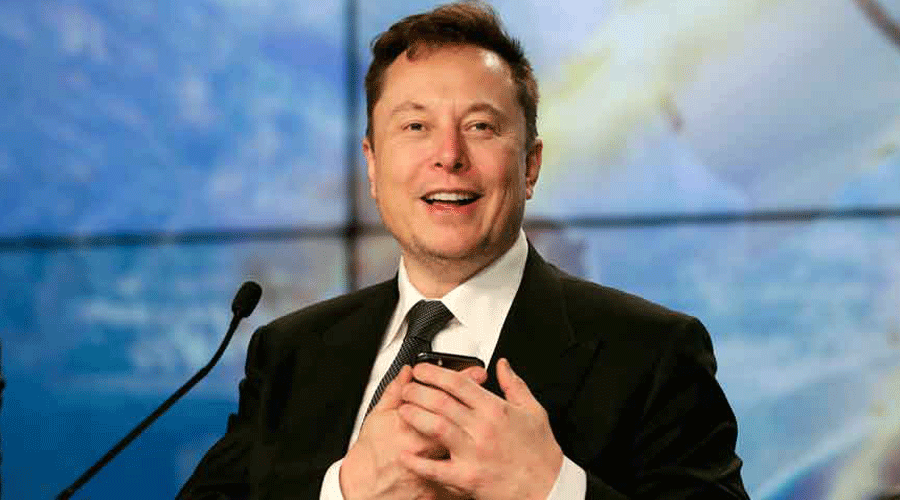In January 2020, thousands of Twitter employees gathered in Houston for a corporate summit called #OneTeam. During the event, Jack Dorsey, Twitter’s CEO at the time, revealed he had invited a surprise guest. Then, with a wave and a smile, Elon Musk appeared on giant screens above the stage. The crowd cheered, clapped and pumped fists. “We love you,” one employee shouted.
Inside Twitter today, surprise announcements about Musk, now the world's richest man, land differently. Employees said they have largely stopped celebrating the richest man in the world since he declared his intent earlier this month to buy Twitter, scrap its content moderation policies and transform the publicly traded company into a private one. On Monday, Twitter announced it had accepted Musk’s offer to buy the company for about $44 billion.
As the takeover fight played out over the past two weeks, Twitter employees said they were frustrated that they had heard little from management about what it meant for them, even as Twitter closed in on a deal with Musk on Monday morning. They asked their CEO, Parag Agrawal. They asked Musk himself in questions sent on Twitter. Some even went to Charles Schwab, the financial firm that manages their stock options, for clarity about the impact a sale of the company would have on them.
But they were not getting very many answers before Musk’s bid succeeded, said 11 Twitter employees who asked to not be named because they were not authorized to speak publicly, even as it became clear that they could soon find themselves reporting to Musk.
On Monday afternoon, Agrawal and Twitter’s chair, Bret Taylor, finally met with employees to discuss the deal. Compensation would remain largely the same under Musk, Agrawal said, but he did not make the same assurances about Twitter’s policies and culture.
“We constantly evolve our policies,” Agrawal said in response to an employee question about whether former President Donald Trump would be allowed back on the platform. “Once the deal closes, we don’t know what direction this company will go in.”
The silence that hovered over the negotiations is routine in takeover fights, Taylor told employees. As the board of directors confers with bankers, lawyers and expensive public relations firms, employees are often kept in the dark. But for employees at Twitter, a company that has billed itself as the world’s town square, finding out what is happening to their company primarily through Twitter, the service they built, has been particularly embittering.
After years of leadership squabbles, demands for change from activist investors and the boundary-testing tweets of Trump, Twitter’s more than 7,000 employees are accustomed to turmoil. But some of them say the takeover by the mercurial billionaire is hitting them in ways other company crises have not.
Employees said they worried that Musk would undo the years of work they have put into cleaning up the toxic corners of the platform, upend their stock compensation in the process of taking the company private, and disrupt Twitter’s culture with his unpredictable management style and abrupt proclamations.
But Musk also has fans among Twitter’s rank-and-file, and some employees have welcomed his bid. In an internal Slack message seen by The New York Times that asked if employees were excited about Musk, about 10 people responded with a “Yes” emoji. A Twitter spokesperson declined to comment.
If Twitter is worth buying, much of its value is in the employees who build and manage the service, said David Larcker, a professor of accounting and corporate governance at Stanford University. “The wild card is, what if it becomes a very different company than they thought they were working for? It’s an uncomfortable working relationship,” he said.
Musk has made some of his intentions clear in regulatory filings, tweets and public appearances: The company must scrap nearly all of its moderation policies, which ban content like violent threats, harassment and spam. It must provide more transparency about the algorithm it uses to boost tweets in users’ newsfeeds. And it must become a private company.
Twitter has been expanding its content moderation policies since 2008, when its 25th employee was hired specifically to combat abuse on its platform. The teams overseeing moderation and safety have now grown to hundreds of employees.
Many Twitter employees feel personally invested in the company’s effort to encourage healthy conversation — even if they do not directly work on content moderation — and have pressed executives to crack down further on hate speech and misinformation, six employees said. They see Musk’s proposal to revert to Twitter’s early, lax approach as a rebuke of their work.
But other employees have argued in internal messages seen by the Times that their co-workers have shifted too far to the left side of the political spectrum, making employees who support Musk’s plans too uncomfortable to speak up. In a worker-run survey of nearly 200 Twitter employees on Blind, an anonymous workplace review app, 44% said they were neutral on Musk. Twenty-seven percent said they loved Musk, while 27% said they hated him.
Although executives and employees at Twitter have agreed with Musk about changes to its algorithm, that work is in its earliest stages and could take years to complete. That could test something Musk is not particularly known for — patience.
One of the top concerns among Twitter workers is whether they will take a financial hit from Musk’s acquisition. Many Twitter employees make 50% or more of their total compensation from Twitter stock. Some employees said they feared missing out on the long-term value of their stock at Musk’s price of $54.20 per share.
At the meeting with employees Monday, executives tried to assure employees that they wouldn’t be shortchanged by Musk’s acquisition. Agrawal told employees that their stock options would convert to cash when the deal with Musk closes, which he estimated would take between three and six months. Employees would receive their same benefits packages for a year after the deal was finalized.
In an earlier attempt to quell financial worries, Sean Edgett, Twitter’s general counsel, told employees that any potential buyer would likely be required to keep employee equity “as is” or provide equivalent compensation, like a cash award.
Edgett, who made his comments before the deal with Musk was announced, stressed that employees should not view his guidance as insight into the deal-making. “This is meant to provide some peace of mind and explain how these things typically work, not because we believe there will be one outcome versus another,” he wrote in messages to employees reviewed by the Times.
Twitter has been on a hiring spree, spending $630 million on stock-based compensation in 2021, a 33% increase from the previous year. Twitter predicted in a February earnings report that it would spend between $900 million and $925 million on stock-based compensation this year.
But Musk’s campaign has also begun to undercut Twitter’s attempts to recruit new employees, according to internal documents outlining the company’s hiring efforts that were viewed by the Times. Prospective hires have expressed skepticism about Musk’s plans to transform Twitter and upend its content moderation, those documents said.
Employees have also wondered: Could he also move Twitter’s headquarters to Texas, as he did with Tesla? Could he end the company’s flexibility about returning to the office, which has become a selling point for employees and recruits? Musk, after all, fought with officials in California to keep his car factory open early in the pandemic.
Agrawal tried to calm his workforce. In a Q&A session Monday, he urged employees to “operate Twitter as we always have,” adding that “how we run the company, the decisions we make and the positive changes we drive — that will be on us, and under our control.”
The stress at the mention of Musk is a stark contrast to the welcome he enjoyed from employees two years ago. Although some employees said they were skeptical of Musk at the 2020 event, many of them listened attentively as he gave his advice for Twitter: The company should step up its moderation, he said, by doing more to weed out bots and scammers from the actual humans using the platform.
“By the way, do you want to run Twitter?” Dorsey asked Musk.
The assembled Twitter employees laughed. Musk did not immediately answer.
New York Times News Service












